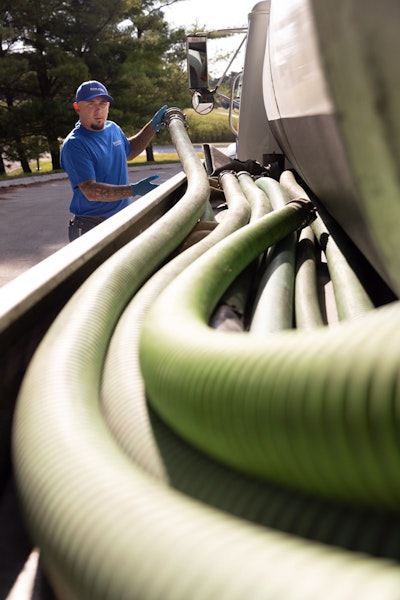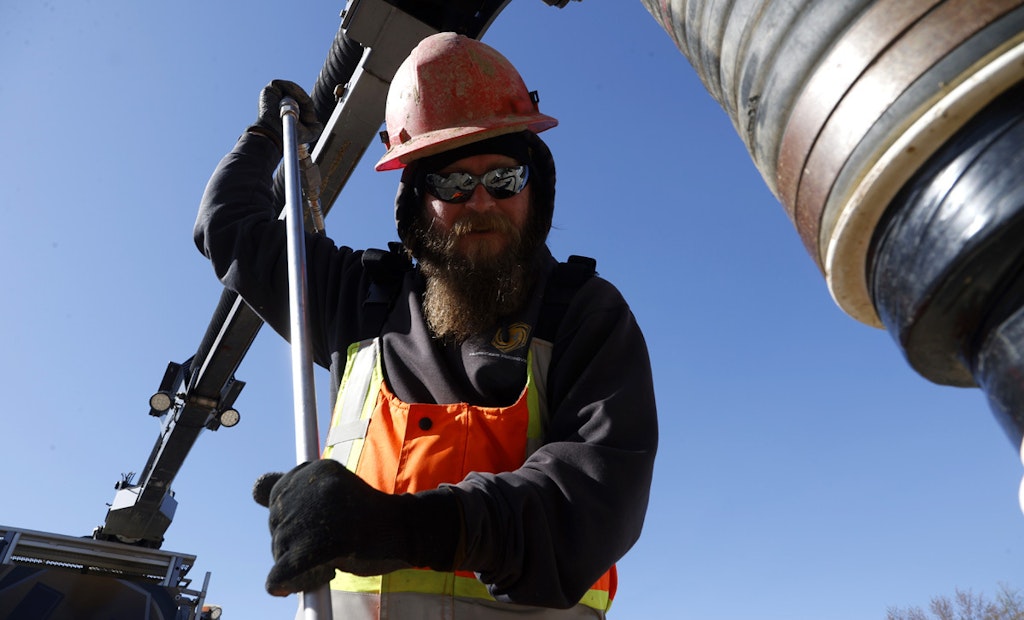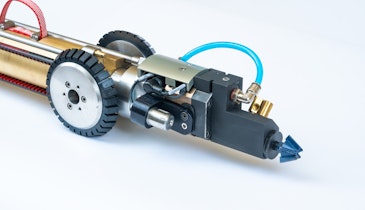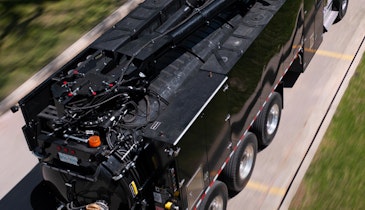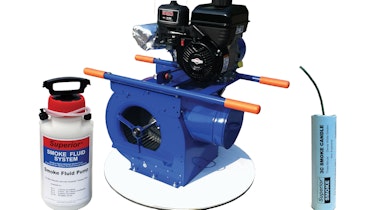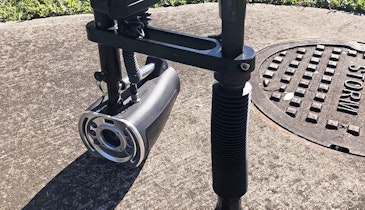Interested in Safety?
Get Safety articles, news and videos right in your inbox! Sign up now.
Safety + Get AlertsIn the water and sewer industry there are many hazards within the daily work that put employees at risk. Whether it’s working in a trench, a confined space, handling chemicals or driving an excavator there are always dangers present.
Sewer and water technicians regularly encounter the potential dangers of driving and operating vacuum trucks. These powerful vehicles help us do many things and make our jobs easier, but they offer some serious hazards as well. Therefore, it is a must to prioritize safety when you are operating vacuum trucks.
A typical vacuum truck can weigh over 30,000 pounds, which presents obvious dangers. Imagine the kind of damage it would cause should it strike another vehicle or run off the road at full speed. The operators of these vehicles must be properly trained and authorized to operate them. But there are many other precautions and best practices to be aware of and followed.
At the top of the list of best practices is proper training for all operators in the equipment operation, all safety protocols, proper maintenance and emergency procedures. Next on the list is wearing the appropriate personal protective equipment, which can range from a hard hat, safety glasses, hearing protection, steel toe shoes and the right type of gloves to ensure operator protection.
It is the operator’s responsibility to conduct pre-operation inspections to check the condition of the hoses, tanks, valves, alarms, lights and any other equipment the operator will be using. If there are any issues or damages, ensuring they are repaired properly before using the equipment is a must. Do not take the risk of using damaged equipment.
An area that can be easily forgotten or overlooked is overhead clearance with power lines. Be sure to maintain plenty of clearance with a minimum of 10 feet unless you’ve made proper arrangements with the local power company to have the line’s power cut off.
Your work area will need to be clear and clean for good footing. You do not want to try to operate on an incline, slippery ground or any unstable surface. Working close to trenches can create an unsafe working surface so be aware of this hazard.
Also, working near and sometimes in the middle of the roadway creates an altogether different type of hazard. Unfortunately, today’s drivers tend to be distracted so it is vital to make sure you are highly visible. Always wear your high visibility apparel and have the proper cones set up to protect yourself and your crew from oncoming traffic.
Operators will need to be familiar with emergency shutdown procedures as well as knowing where the fire extinguisher and first-aid kits are located on the truck. If there is an emergency, stop working and follow the proper procedures for shutting down the vacuum truck.
Part of operating a vehicle of this magnitude involves driving the vehicle on all types of roadways. The operator needs to always have a second operator to help with backing up and parking due to the large scale of the vacuum truck. When backing up and parking in tight areas, always use a spotter to ensure you are safely getting where you want to go. The importance of having a second operator present extends to all operations of the vacuum truck.
Another reminder while operating your vacuum truck is to leave the cellphone out of the equation. Cellphones are a major distraction and the damage caused by a collision involving a vacuum truck can be enormous, costly and even deadly. No phone call or text is worth that risk so just don’t do it.
Lastly, operating the pressure washer has its own set of dangers so the operators should also be properly trained in its use. The operator must be familiar with the safety precautions, which include making sure to never direct the spray towards yourself or anyone else. This may sound obvious, but too many operators have been seriously injured in pressure washer incidents. Always release any residual pressure in the system by turning off the water supply and operating the trigger before disconnecting any hose or accessory.
Operating a vacuum truck can be a safe experience if the operators are following safety procedures. It’s a responsibility never to be taken lightly and must be shared by both operators and any employees that might be working in the area during operation.
